NASH has supported and participated in the revision process of the 2000 Standards and Competencies Document because it represents much needed guidelines for the voluntary self-regulatory structure of the North American homeopathic community. It has the potential of strengthening our community, our practitioners and our institutions. We cannot overemphasize the importance of having commonly agreed upon guidelines for our institutions, such as our schools, our accrediting and certification organizations, and for our practitioners and students. At the same time, we also cannot overemphasize the importance of protecting the continued free and voluntary nature of these guidelines, as the future creativity and vitality of homeopathic healthcare depends on it.
Our profession is relatively small, and yet at the same time, extremely diverse. This is very evident in the fact that many diverse professions and occupations are represented in the homeopathic community—medical doctors, naturopathic physicians, oriental doctors, acupuncturists, nurses, midwives, psychologists, etc., as well as professional homeopaths. Some of our professionals practice under licensing statutes or government regulations that clearly define their scope of practice. Others practice under the protection of health freedom laws, and some practice homeopathy under significant legal restrictions and uncertainties created by existing statutes. NASH members practice largely within the latter two environments.
NASH’s main concerns are with potential problems that may arise from the document’s language as it relates to the professional homeopath practicing in non-health freedom states. Most of the other organizations participating in the S&C process represent professions with licenses that are not affected by the same issues. While we have never had any serious differences over the substance of what our standards and competencies ought to be, including the code of ethics, the differences in our legal status has created some disagreements or conflicts with the language of the document. For example, while some professions may legally “treat disease” others may not. Words are important. Words can incriminate.
Our homeopathic organizations have worked hard and, for the most part, have succeeded in our efforts to avoid words in the S&C document that could jeopardize or endanger our practitioners. Also, NASH is happy to report that the term “emerging profession” has been removed from the introduction, as in reality, we are a two hundred year old profession. As such, we are a profession of common right – a right protected by court rulings.
NASH, from the beginning, has envisioned the S&C process as an opportunity for our diverse groups to find common ground without interjecting into this process the specter of government regulation. We are happy to note that previous references to government recognition in relation to this document have also been stricken from the introduction. After many meetings and discussions our homeopathic community did find common ground on this issue. We would like to thank our colleagues on the HAA who represented the licensed professions for their patience and flexibility in accommodating unlicensed professional homeopaths in this regard.
NASH felt all along that it would be important for this document to be reviewed by an attorney and this has been done. Our attorney and friend, Diane Miller, JD, edited the document for problematic language. Diane replaced all language referring to “mandatory” requirements with “voluntary” recommendations and guidelines; however the HAA did not adopt this version.
We have included Diane’s edited version with our comments as this is the version the NASH board feels will best serve the homeopathic community. Click here to see Diane Miller’s version of the S & C document.
